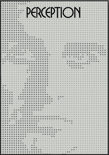
PERCEPTION
Scope & Guideline
Connecting Psychology, AI, and Sensory Systems
Introduction
Aims and Scopes
- Visual Perception and Illusions:
The journal regularly publishes studies on visual perception, including research on visual illusions, depth perception, and color perception, emphasizing how these phenomena affect our interpretation of visual stimuli. - Crossmodal Perception:
A significant area of focus is on crossmodal correspondences, exploring how different sensory modalities, such as sight, sound, and touch, interact and influence perception, providing insights into the integrative nature of sensory processing. - Cognitive and Developmental Factors:
Research on how cognitive processes and developmental factors influence perception is prevalent, including studies on age-related changes and individual differences that affect sensory experiences. - Psychophysical Methods:
The journal utilizes psychophysical methods to investigate perceptual thresholds and sensory discrimination, often employing innovative experimental designs to explore complex perceptual phenomena. - Applications of Perception Research:
Studies often explore practical applications of perception research in fields such as marketing, virtual reality, and design, analyzing how perceptual principles can enhance user experience and engagement.
Trending and Emerging
- Multisensory Integration:
There is an increasing focus on studies examining how multiple sensory modalities work together to create a cohesive perceptual experience, reflecting a broader interest in understanding the complexities of human perception. - Virtual and Augmented Reality Applications:
Research exploring the implications of virtual and augmented reality on perception has surged, indicating a growing interest in how these technologies can alter sensory experiences and perceptions of reality. - Individual Differences in Perception:
Emerging studies are increasingly highlighting individual differences in sensory perception, such as variations due to age, sex, or cognitive style, which are crucial for understanding personalized perceptual experiences. - Impact of Technology on Perception:
There is a notable trend towards investigating the effects of technology, including smartphones and social media, on perceptual processes and attention, reflecting contemporary societal changes. - Psychophysical Innovations:
Recent publications have introduced innovative psychophysical approaches, including Bayesian methods and continuous psychophysics, demonstrating a trend towards more sophisticated analytical techniques in perception research.
Declining or Waning
- Traditional Visual Arts and Aesthetics:
Research centered on traditional visual arts and aesthetic evaluations seems to be declining, possibly due to a shift towards more empirical and experimental approaches in understanding perception. - Static Visual Stimuli:
There appears to be a waning interest in studies exclusively focusing on static visual stimuli, with more emphasis now placed on dynamic and interactive perceptual experiences. - Emotional and Social Perception:
While still relevant, the exploration of emotional and social perception, particularly in static contexts, has become less frequent, indicating a potential shift towards more nuanced interactions involving multiple sensory modalities.
Similar Journals
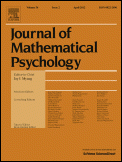
JOURNAL OF MATHEMATICAL PSYCHOLOGY
Exploring the Mathematical Foundations of Psychological PhenomenaJOURNAL OF MATHEMATICAL PSYCHOLOGY, published by Academic Press Inc Elsevier Science, is a premier scholarly journal dedicated to advancing the intersection of mathematics and psychology through rigorous research and innovative methodologies. Since its inception in 1964, this esteemed publication has charted significant developments in both Applied Mathematics and Psychology, consistently ranking in the top quartile (Q1) of its categories as of 2023. With a focus on the application of mathematical techniques to psychological problems, the journal serves as a pivotal resource for researchers and professionals alike, providing insights that enhance understanding of cognitive processes and behavioral phenomena. Researchers can access a wealth of articles that reflect the latest trends and inquiries in the field, making this journal an essential tool for advancing academic and professional literacy. The JOURNAL OF MATHEMATICAL PSYCHOLOGY promotes a collaborative dialogue across disciplines, fostering a deeper comprehension of the intricate relationship between quantitative analysis and human behavior.

JOURNAL OF VISION
Unlocking the Secrets of Sight and Sensory ProcessingThe JOURNAL OF VISION, published by the ASSOCIATION FOR RESEARCH IN VISION AND OPHTHALMOLOGY INC, stands as a premier platform in the fields of Ophthalmology and Sensory Systems. Since its inception in 2001, this Open Access journal has worked to disseminate innovative research and groundbreaking discoveries that advance our understanding of vision science. With an impressive impact factor and ranked in the Q2 quartile for both Ophthalmology and Sensory Systems categories as of 2023, it offers a remarkable avenue for scholars and practitioners alike to share their insights and foster collaboration. Based in the United States, the journal maintains a commitment to accessibility, allowing researchers worldwide to engage with its comprehensive body of work. The JOURNAL OF VISION not only enhances the global dialogue around ocular health and sensory processing but also serves as an essential resource for professionals aiming to stay at the forefront of vision research.
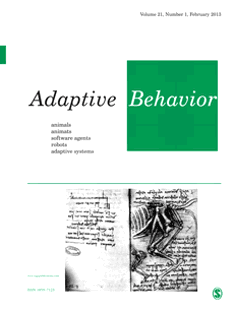
ADAPTIVE BEHAVIOR
Pioneering Research in Behavioral AdaptationADAPTIVE BEHAVIOR is a renowned academic journal published by SAGE PUBLICATIONS LTD, dedicated to advancing the understanding of adaptive mechanisms in behavior across a spectrum of disciplines. With a focus on Artificial Intelligence, Behavioral Neuroscience, and Experimental and Cognitive Psychology, this journal aims to facilitate the dissemination of innovative research and theoretical advancements that relate to adaptive behaviors in both humans and artificial systems. The journal, which spans from 1992 to 2024, holds a commendable position within its field, ranked in the Q3 category for multiple categories, and Q1 in Philosophy. Furthermore, it is recognized within Scopus rankings, ensuring its impact and relevance in the academic community, with a notable rank of #57 in Experimental Psychology and #49 in Behavioral Neuroscience. While ADAPTIVE BEHAVIOR does not currently offer Open Access options, it maintains a vital role in bridging disciplines and fostering discourse among researchers, professionals, and students who are exploring the complexities of behavior in adaptive systems.
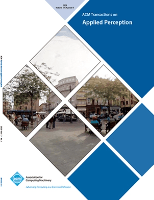
ACM Transactions on Applied Perception
Advancing Insights at the Intersection of Mind and MachineACM Transactions on Applied Perception is a leading journal published by the Association for Computing Machinery, focusing on the intersection of perception science and computational methods. With an ISSN of 1544-3558 and an E-ISSN of 1544-3965, this esteemed publication has been a vital resource for innovators and researchers since its establishment in 2004. It operates within the ambit of Computer Science and the realms of Experimental and Cognitive Psychology, boasting a commendable impact factor and category rankings, including Q2 in Computer Science (miscellaneous) and Q3 in both Experimental and Cognitive Psychology and Theoretical Computer Science. The journal's scope encompasses a plethora of studies aimed at understanding human perception through computational lenses, making it an essential platform for scholarly exchange. Although it does not currently offer an Open Access option, its extensive reach and rigorous peer-review process ensure high visibility and impact in the academic community. By fostering collaboration across disciplines, ACM Transactions on Applied Perception encourages advancements that bridge perceptual research with practical applications, making it invaluable for researchers, professionals, and students engaged in this dynamic field.

Attention Perception & Psychophysics
Exploring the Frontiers of Cognition and PerceptionAttention Perception & Psychophysics is an esteemed academic journal published by Springer, specializing in the fields of experimental and cognitive psychology, linguistics and language, as well as sensory systems. With an impressive impact factor reflected in its classification as Q2 in Experimental and Cognitive Psychology and Q1 in Linguistics and Language for 2023, the journal promotes cutting-edge research and theoretical insights into how perception, attention, and psychophysical processes shape human cognition. Its accessibility through diverse open access options ensures that pioneering research is available to a global audience, fostering collaborative advancement in the cognitive sciences. As a vital resource for researchers, professionals, and students, Attention Perception & Psychophysics serves as a significant platform for disseminating innovative findings and engaging with contemporary debates within the dynamic landscape of psychology and related disciplines.

Art & Perception
Innovating Research at the Crossroads of Art and PerceptionArt & Perception, published by BRILL, stands as a pivotal journal in the exploration of visual arts and the psychology of perception. With a robust ISSN of 2213-4905 and E-ISSN of 2213-4913, this journal has established itself as an indispensable resource for researchers, professionals, and students in the fields of Applied Psychology, History, and Visual Arts. As of 2023, it enjoys impressive rankings in its categories, with a Q3 status in Applied Psychology and a Q1 status in both History and Visual Arts, reflecting its scholarly impact. The journal operates from its base in Leiden, Netherlands, and spans an impressive coverage from 2013 to 2024. While it does not currently offer open access, its commitment to disseminating valuable research makes it an essential read for those seeking to deepen their understanding of art perception and its psychological underpinnings. With a Scopus rank of #39 out of 667 in Arts and Humanities, and a remarkable 94th percentile, Art & Perception continues to shape discourse and innovation at the intersection of art and psychology.

Review of Philosophy and Psychology
Illuminating the Connections Between Thought and BehaviorReview of Philosophy and Psychology, published by Springer, stands as a pivotal journal at the intersection of two influential disciplines. Operating under the ISSN 1878-5158, this esteemed publication has garnered attention since its inception in 2010, with a clear commitment to advancing the discourse in both Experimental and Cognitive Psychology and Philosophy. Notably, it has achieved impressive rankings in 2023, placing in the Q2 category for Experimental and Cognitive Psychology and Q1 category for Philosophy, further enhancing its credibility and appeal among scholars. With a notable Scopus ranking of #26 in Philosophy and #40 in Experimental Psychology, the Review of Philosophy and Psychology serves as an essential platform for the dissemination of research that equips readers with multifaceted insights and fosters interdisciplinary dialogue. While the journal maintains traditional access options, it continues to contribute significantly to its fields with high-quality articles that challenge and expand existing paradigms. As such, it is an invaluable resource for researchers, professionals, and students eager to explore and understand the nuanced relationships between philosophical inquiry and psychological research.
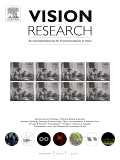
VISION RESEARCH
Illuminating the complexities of vision.VISION RESEARCH, published by PERGAMON-ELSEVIER SCIENCE LTD, is a leading journal in the field of visual sciences, focusing on the diverse aspects of ophthalmology and sensory systems. With a rich publication history dating from 1961 and extending into 2024, this journal has become a cornerstone for researchers and practitioners alike, offering critical insights into vision science. The journal holds a commendable Q2 ranking in Ophthalmology and a Q3 ranking in Sensory Systems, evidencing its significant contribution to these fields. VISION RESEARCH also boasts a respectable Scopus ranking, placing it in the 66th percentile for Ophthalmology and 46th percentile for Neuroscience. Although it is not an Open Access journal, readers can access its impactful research through various academic institutions. With its emphasis on innovative research and developments in understanding visual perception, VISION RESEARCH is an essential resource for scientists, clinicians, and students dedicated to advancing the understanding of vision and its associated mechanisms.

MUSIC PERCEPTION
Unraveling the Mysteries of Musical InfluenceMUSIC PERCEPTION is a prestigious academic journal dedicated to the interdisciplinary exploration of musical experience and understanding. Published by the University of California Press, this journal has established itself as an essential resource in the field of music psychology, with a strong emphasis on how auditory stimuli influence human cognition and emotion. The journal boasts a commendable Q1 ranking in Music, placing it within the top-tier of scholarly publications, and it holds an impressive Scopus Rank of #4 out of 180 in the Arts and Humanities category, reflecting its critical role in advancing research within this domain. MUSIC PERCEPTION welcomes contributions that delve into diverse topics, including auditory perception, acoustics, and the psychological impacts of music, making it a vital platform for researchers, professionals, and students seeking to deepen their understanding of music's multifaceted nature. The journal is published annually and remains a cornerstone for academic discourse, ensuring that new findings are readily accessible to a global audience.

International Journal of Affective Engineering
Transforming engineering with human-centered emotion.Welcome to the International Journal of Affective Engineering, an esteemed publication dedicated to advancing the interdisciplinary fields of affective engineering and human-centered design. Published by the Japan Society of Kansei Engineering, this journal aims to foster innovative research that bridges emotional perception with engineering practices, ultimately enhancing user experiences across various applications. As a peer-reviewed platform, the journal plays a pivotal role in disseminating groundbreaking studies and methodologies, positioning itself as a valuable resource within the academic landscape. The journal is designed for a diverse audience, including researchers, industry professionals, and students committed to exploring the emotional dimensions of technology. Although it currently operates under a subscription model, the journal remains open to new research contributions that emphasize the significance of affective design in technology development. With its focus on quality research, the International Journal of Affective Engineering is poised to make a substantial impact in the evolving field of affective sciences.